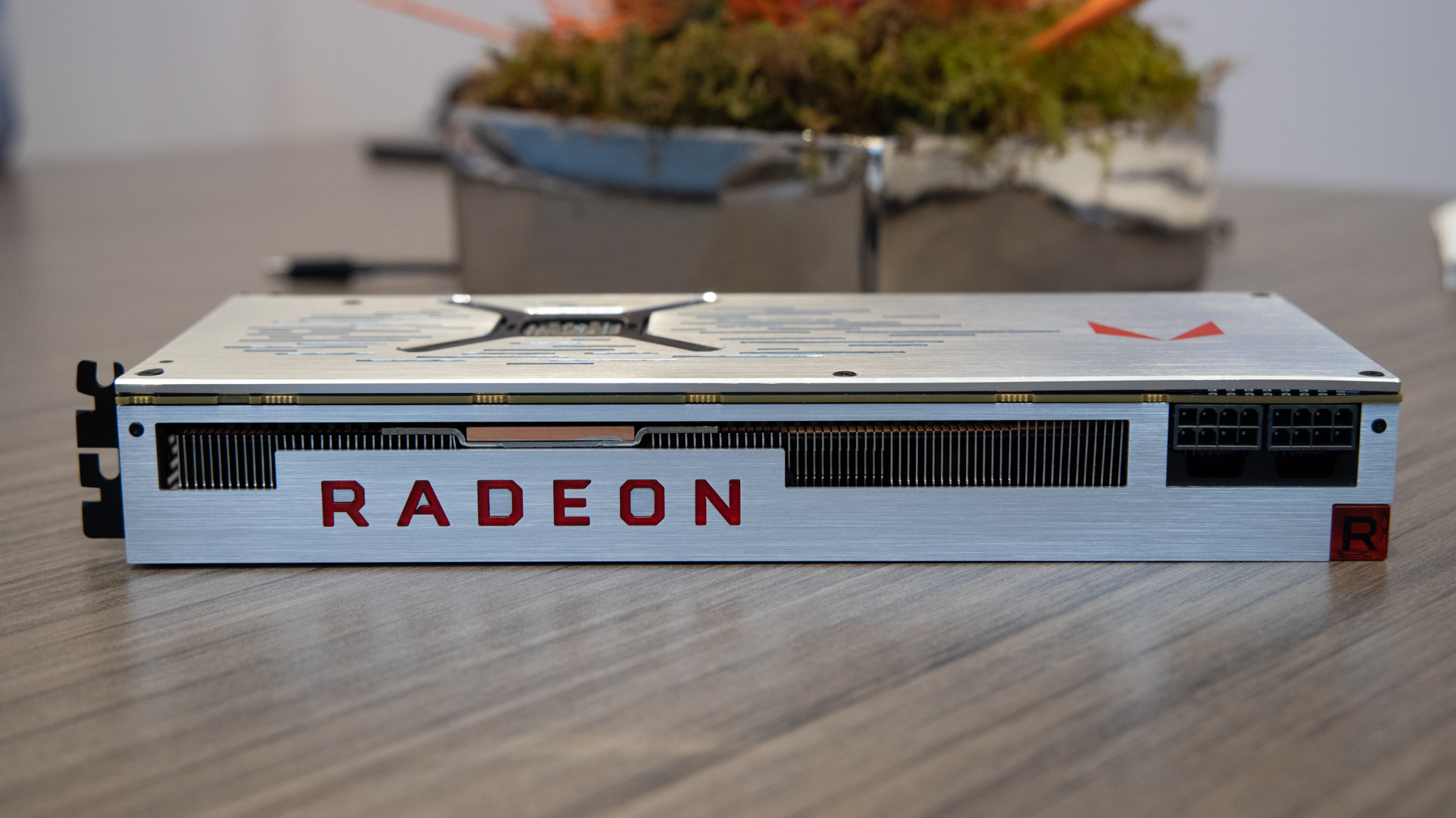AMD rumored to unveil Radeon Navi RX 3080 and 3070 GPUs next week
But speculation holds that they won’t be as cheap as hoped

The latest AMD rumor is a biggie, and reveals the apparent existence of a pair of incoming Navi graphics cards which will be unveiled in less than a week, and go on sale on July 7.
Before we get stuck into this, remember that this is all just speculation, but it allegedly comes from a spokesperson for GPU manufacturer Sapphire as reported by Wccftech.
The rumor contends that AMD will debut the Radeon RX 3080 and RX 3070 – using the Navi XT and Navi Pro chips – on May 27, with an E3 full launch event to follow on June 10, and the cards to be on shelves come July 7 (a date we’ve heard mentioned before, because it’s 7/7, referencing Navi’s 7nm process).
- AMD Navi GPUs appear in leaked benchmarks
- AMD Navi release date, news and rumors
- This is everything we know about Intel’s graphics cards
Both GPUs are expected to be impressive performers that square up competitively with Nvidia’s rival GeForce RTX models, and the alleged performance levels are very much in line with recent speculation, although the price point isn’t nearly as low as some rumormongers have previously led us to believe.
The Radeon RX 3080 is allegedly going to be slightly faster than Nvidia’s GeForce RTX 2070, and will come with a retail price of $499 (about £395, AU$725 – although pricing in other territories inevitably won’t be a direct currency conversion). Whereas AMD’s RX 3070 will hit performance levels somewhere in between the RX 2060 and RX 2070, but will be cheaper at $399 (about £315, AU$580).
As mentioned, these rumored prices are more expensive than we previously heard. You might recall that back in December 2018, the graphics grapevine reckoned that the RX 3080 would be pitched around $250 (about £195, AU$360) while being competitive with the RTX 2070.
Price isn’t right?
We felt that was overly optimistic guesswork at the time, and indeed this appears to be the case, although of course we shouldn’t get carried away – this new alleged pricing could be potentially off-the-mark, as well.
Get daily insight, inspiration and deals in your inbox
Sign up for breaking news, reviews, opinion, top tech deals, and more.
But if we assume it’s correct for a moment, the asking price of $499 for the RX 3080 feels like something of a disappointment. Even if it is slightly faster than the RTX 2070, the GeForce card can be had for around $480 in the US at the time of writing – and Nvidia allegedly has plans to use faster video RAM with all its RTX cards to help counter the Navi launch.
As for the RX 3070, if that does indeed arrive at $399, performing midway between the RTX 2060 and 2070 for argument’s sake, that seems a better proposition. Although if it’s leaning more towards RTX 2060 frame-rates, bear in mind that this Nvidia GPU can be had for starting from around $350 in the US currently.
Once again, it’s worth underlining that this is all still theorizing and guesswork until pricing is actually confirmed. However, if this Sapphire spokesperson has things on the money, so to speak, it rather feels like a missed opportunity for AMD.
If AMD wants to get back into the GPU game as it has successfully done with processors, the firm arguably needs to go for the jugular given Nvidia’s increased domination in the graphics card world of late.
We shall just have to see where these rumored new graphics cards end up being pitched in terms of pricing come release, and of course actually test them to see what kind of price/performance levels we’re really looking at.
However, we are keeping our fingers firmly crossed that AMD is ready to stoke up the rivalry with Nvidia by employing some competitive pricing with Navi, because obviously that would be great news for consumers in a world where graphics cards are seemingly getting more and more expensive (certainly at the top-end, anyway).
- We've picked out all the best graphics cards of 2019
Darren is a freelancer writing news and features for TechRadar (and occasionally T3) across a broad range of computing topics including CPUs, GPUs, various other hardware, VPNs, antivirus and more. He has written about tech for the best part of three decades, and writes books in his spare time (his debut novel - 'I Know What You Did Last Supper' - was published by Hachette UK in 2013).